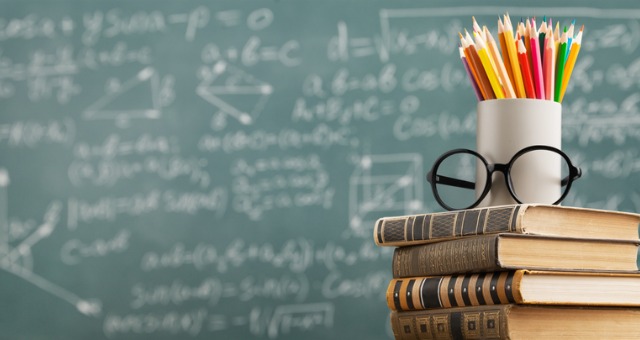Achieve Academic Success with Primary Science Tuition Singapore
Achieve Academic Success with Primary Science Tuition Singapore
Blog Article
Checking Out the Different Teaching Approaches in Primary Science Education And Learning Today
The landscape of key scientific research education and learning is progressing, with different mentor methods acquiring prominence in modern class. Inquiry-based understanding, hands-on experiments, and the assimilation of innovation are redefining exactly how educators involve young minds. In addition, collective techniques and separated direction are being employed to satisfy the varied requirements of students, boosting both engagement and understanding. As we check out these techniques, inquiries develop regarding their efficiency and the ramifications for future educational techniques. What might these changes in technique mean for the future generation of learners?
Inquiry-Based Discovering
Inquiry-Based Learning (IBL) is a pedagogical strategy that encourages trainees to discover scientific ideas via questioning, examination, and hands-on experimentation. This technique stresses the role of trainees as energetic participants in their discovering, advertising vital reasoning and analytical abilities. By engaging with real-world inquiries, trainees become interested and motivated, which enhances their understanding of scientific concepts.
In IBL, educators act as facilitators, directing trainees as they navigate their queries as opposed to supplying information directly. This student-centered approach permits differentiation, fitting numerous learning paces and styles. Trainees create abilities in formulating theories, making experiments, and assessing data, which are critical for clinical literacy.
Additionally, IBL cultivates collaboration amongst pupils, urging them to share searchings for and concepts. This cumulative query promotes social skills and a feeling of area within the class. In addition, the procedure of query motivates resilience, as students find out to welcome failing as a stepping stone toward understanding.
Hands-On Experiments
Hands-on experiments are an essential component of effective science education and learning, enhancing the concepts of inquiry-based understanding. These experiments permit trainees to engage directly with scientific principles, cultivating a much deeper understanding with experiential knowing. By controling materials and observing outcomes, young learners can realize abstract concepts in tangible ways.
Such tasks promote crucial reasoning and analytical skills, as pupils hypothesize outcomes, conduct experiments, and evaluate outcomes. This procedure motivates them to ask questions, fine-tune their understanding, and develop a scientific state of mind. Hands-on experiments can be tailored to varied understanding styles, making sure that all students have the opportunity to involve meaningfully with the content.
In addition, hands-on experiments commonly urge collaboration amongst peers, advertising teamwork and interaction abilities. Operating in teams enables students to share concepts, go over searchings for, and learn from one an additional, which boosts their total educational experience.
Incorporating hands-on experiments into the main scientific research educational program not just improves the finding out setting but also cultivates a lifelong interest in science. By actively taking part in their education, trainees are most likely to develop a passion for scientific inquiry that expands past the class.

Innovation Combination
Incorporating technology into primary science education has become progressively vital in promoting trainee interaction and improving discovering outcomes. Making use of digital tools, such as interactive simulations, virtual labs, and academic software program, gives trainees with chances to check out scientific ideas in cutting-edge means. These sources facilitate a deeper understanding of complex topics by permitting students to envision and adjust variables that would be unwise in a typical class setting.
Additionally, modern technology integration motivates individualized learning experiences. Students can advance at their own speed, reviewing difficult concepts via multimedia sources, which accommodate various knowing styles. This flexibility not just supports specific growth yet additionally cultivates a feeling of autonomy in learners.
Additionally, innovation works as a bridge to real-world scientific research, connecting pupils with current study and specialist contributions. Accessibility to scientific journals and on the internet data sources Discover More Here broadens trainees' viewpoints on clinical inquiry and promotes crucial assuming abilities.
Collaborative Knowing
Collective understanding plays an important duty in primary science education and learning by cultivating teamwork and interaction abilities amongst students. This technique urges students to work together, share understanding, and participate in problem-solving, which improves their understanding of scientific ideas. By taking part in group activities, trainees discover to verbalize their concepts, pay attention to varied perspectives, and work out options, every one of which are essential skills in both real-world and scholastic contexts.

Research shows that collective knowing can lead to enhanced inspiration and engagement in science subjects, as pupils locate pleasure in shared experiences (primary science tuition Singapore). Furthermore, this strategy prepares trainees for future joint ventures, outfitting them with the skills essential for effective team effort in greater education and specialist environments. Inevitably, embracing collective knowing in key science education and learning can substantially enrich the knowing experience and promote a deeper understanding of scientific questions
Set Apart Instruction

Differentiated instruction can manifest in various means, such as differing the web content, procedures, or products of discovering. For example, educators might utilize tiered tasks that supply varying levels of complexity, allowing students to operate at their corresponding preparedness levels. Additionally, flexible organizing strategies can help with collaboration among pupils with various capacities, promoting peer understanding.
Evaluation plays a crucial role in this approach, as it educates guideline and helps instructors understand each pupil's you can try here distinct demands. Developmental assessments, such as tests and monitorings, can assist teachers in changing their strategies to improve learning results. primary science tuition Singapore. Ultimately, by carrying out distinguished guideline in main scientific research education, teachers can grow a much more fair and effective learning atmosphere, encouraging all students to reach their full possibility in understanding clinical sensations
Conclusion
In summary, the varied teaching techniques in primary science education and learning, including inquiry-based learning, hands-on experiments, modern technology combination, collective understanding, and distinguished direction, jointly add to an extra effective knowing atmosphere. These techniques advertise critical thinking, problem-solving skills, and a deeper comprehension of scientific ideas. By carrying out these methods, instructors can develop helpful and engaging classrooms that deal with the different requirements of trainees, eventually promoting a lifelong rate of interest in science and enhancing scholastic success.
Inquiry-Based Understanding (IBL) is an instructional technique that motivates trainees to explore clinical principles with wondering about, investigation, and hands-on experimentation.Collaborative understanding plays an essential function in main science education and learning by promoting teamwork and interaction abilities among students.Study suggests that collaborative understanding can lead to boosted motivation and involvement in scientific research subjects, as pupils discover enjoyment in shared experiences.In cultivating an inclusive learning atmosphere, distinguished instruction arises as a key approach to fit the varied requirements and capacities of trainees in key science education and learning. Eventually, by applying distinguished guideline in main scientific research education, instructors can cultivate a much more fair and effective knowing setting, empowering all trainees to reach their complete potential in recognizing clinical phenomena.
Report this page